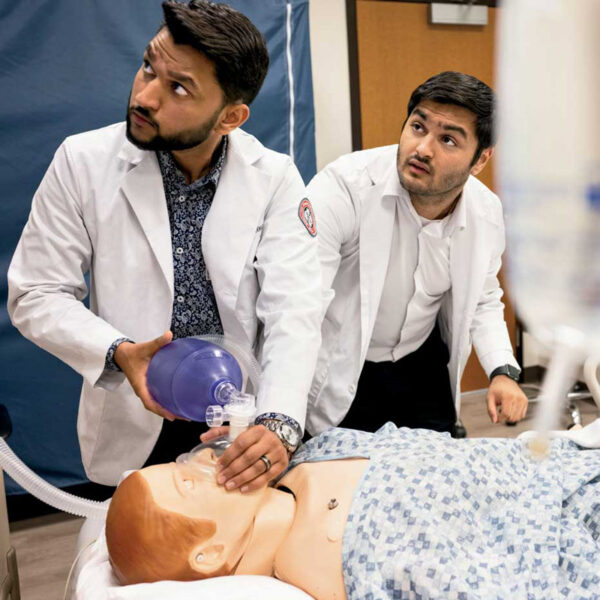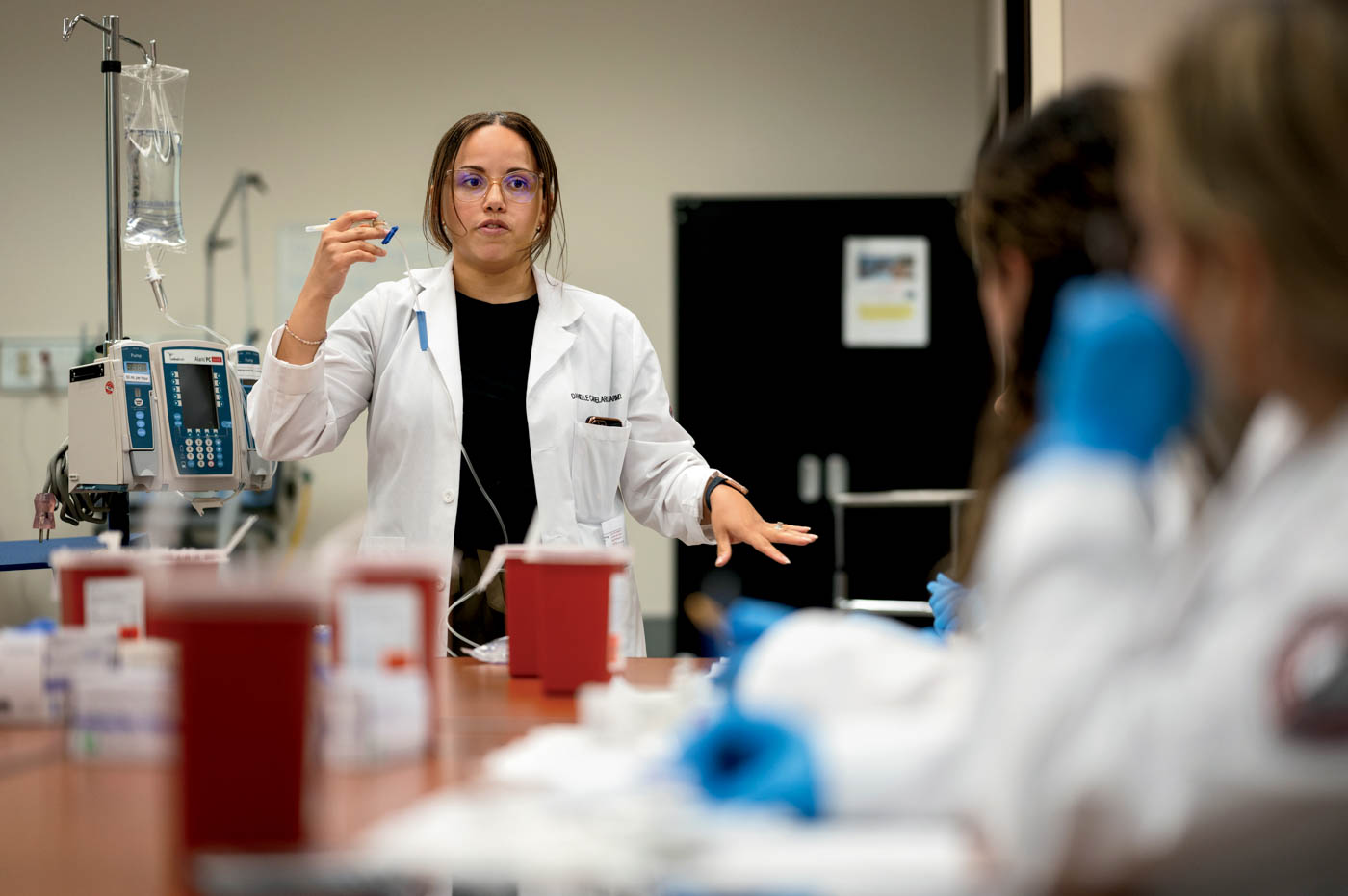A DOSE OF PREVENTION
By Contributor
WORDS AND PHOTOGRAPHY PROVIDED BY ROSALIND FRANKLIN UNIVERSITY OF MEDICINE AND SCIENCE
Providing rescue breaths using a mask and ventilation bag can be necessary when responding to opioid emergencies.
By Contributor
WORDS AND PHOTOGRAPHY PROVIDED BY ROSALIND FRANKLIN UNIVERSITY OF MEDICINE AND SCIENCE
Providing rescue breaths using a mask and ventilation bag can be necessary when responding to opioid emergencies.

As opioid-associated emergencies and overdose-related deaths have increased over the past decade, health care provider training is crucial to the provision of emergency care services. The College of Pharmacy students at Rosalind Franklin University of Medicine and Science (RFU) in North Chicago are on the frontline of care in responding to the challenges presented by the opioid crisis.
A key component of their education is real-world training through RFU’s Department of Healthcare Simulation, which provides safe spaces for students to practice their clinical skills in simulated emergency situations. Students participate in a simulation exercise with intranasal naloxone (also known as Narcan®), a quick-acting opioid-reversal agent that can save lives if given in a timely manner.
Each year, student pharmacists participate in a high-fidelity simulation training. Under the guidance of faculty, students develop their clinical skills in the setting of an opioid-associated emergency and administer naloxone to state-of-the-art manikins, which are full-body simulated patients.
Working in teams, the pharmacy students evaluate and care for a simulated patient—in this simulated case, a 45-year-old patient brought in by EMS after a car accident. The patient is found behind the wheel with lacerations to the face and hands. The patient has shallow respirations and is lightly in and out of consciousness.
Through this simulation, students learn to recognize the signs and symptoms of opioid overdose, identify appropriate use of the naloxone rescue product, identify the appropriate dosing for naloxone intranasal spray, and calculate an appropriate naloxone infusion dose and rate. This training is aimed directly at making the students field-ready to respond to emergencies as they move into residency and practice.

The university also forges valuable partnerships with academic, health care, business, government, and community organizations across Lake County to advance the mission of improving health outcomes. Through a partnership with the Lake Forest-based GPF Foundation—which works to save lives by supporting education, appropriate treatment, and overall awareness of the dangers related to recreational drug use—more innovative training opportunities were developed.
RFU and the Foundation collaborated on an educational tool that launched on the Full Code Medical Simulation online training platform in 2022. The case helps frontline medical providers more accurately diagnose and effectively treat patients experiencing adverse effects of psychostimulant use.
RFU was honored in 2022 with the Foundation’s Harm Reduction Award for the university’s educational initiatives to save lives that otherwise might be lost due to recreational drug use.
“Our educational and research collaborations with the GPF Foundation are a testament to our frontline training designed to address the opioid crisis,” say RFU President and CEO Dr. Wendy Rheault who accepted the award. “RFU creates an environment where students can learn, from and with each other, with the goal of enabling effective collaboration. This is the key to redefining health care as a coordinated team effort to support the well-being of people and their communities.”
RFU encompasses the Chicago Medical School, College of Health Professions, College of Pharmacy, College of Nursing, the Dr. William M. Scholl College of Podiatric Medicine and School of Graduate and Postdoctoral Studies. To learn more about its programs and efforts to improve health and wellness, visit rosalindfranklin.edu.
Sign Up for the JWC Media Email